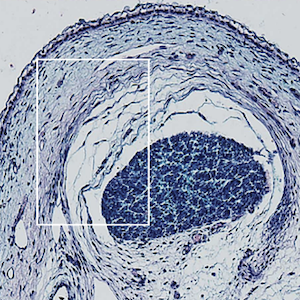Adherence to treatment and associated factors in rheumatoid arthritis patients: a cross-sectional study from Iran

All claims expressed in this article are solely those of the authors and do not necessarily represent those of their affiliated organizations, or those of the publisher, the editors and the reviewers. Any product that may be evaluated in this article or claim that may be made by its manufacturer is not guaranteed or endorsed by the publisher.
Accepted: 27 March 2023
Authors
The aim of this study is to evaluate adherence to treatment and its related risk factors among a sample of rheumatoid arthritis patients (RA) attending the rheumatology outpatient clinic of Kermanshah university of medical sciences. In this cross-sectional study, RA patients were asked to complete the Morisky questionnaire and 19-item compliance questionnaire for rheumatology (CQR). Patients were divided into two groups: adherent and non-adherent to treatment, based on the CQR questionnaire results. Demographic and clinical characteristics (age, sex, marital status, education level, economical condition, occupational status, place of residence, underlying diseases, type, and number of drugs) were compared between the two groups to investigate possible risk associations for poor adherence. 257 patients completed the questionnaires (mean age: 43.22, 80.2% female). 78.6% were married, 54.9% were housekeepers, 37.7% had tertiary education, 61.9% had moderate economic status, and 73.2% were residents of an urban area with a large population. Prednisolone was the most commonly used drug followed by non-steroidal anti-inflammatory drugs, sulfasalazine, hydroxychloroquine, and methotrexate. The mean score of the Morisky questionnaire was 5.528 (standard deviation=1.79). 105 patients (40.9%) were adherent to treatment based on the CQR questionnaire. High education level (college or university) was correlated with non-adherence to treatment [27 (25.71%) vs 70 (46.05%), p=0.004]. We concluded that the prevalence of non-adherence to treatment is 59.1% in rheumatoid arthritis patients in Kermanshah, Iran. Having a higher education level is a risk factor for poor treatment adherence. Other variables could not predict treatment adherence.
How to Cite

This work is licensed under a Creative Commons Attribution-NonCommercial 4.0 International License.











